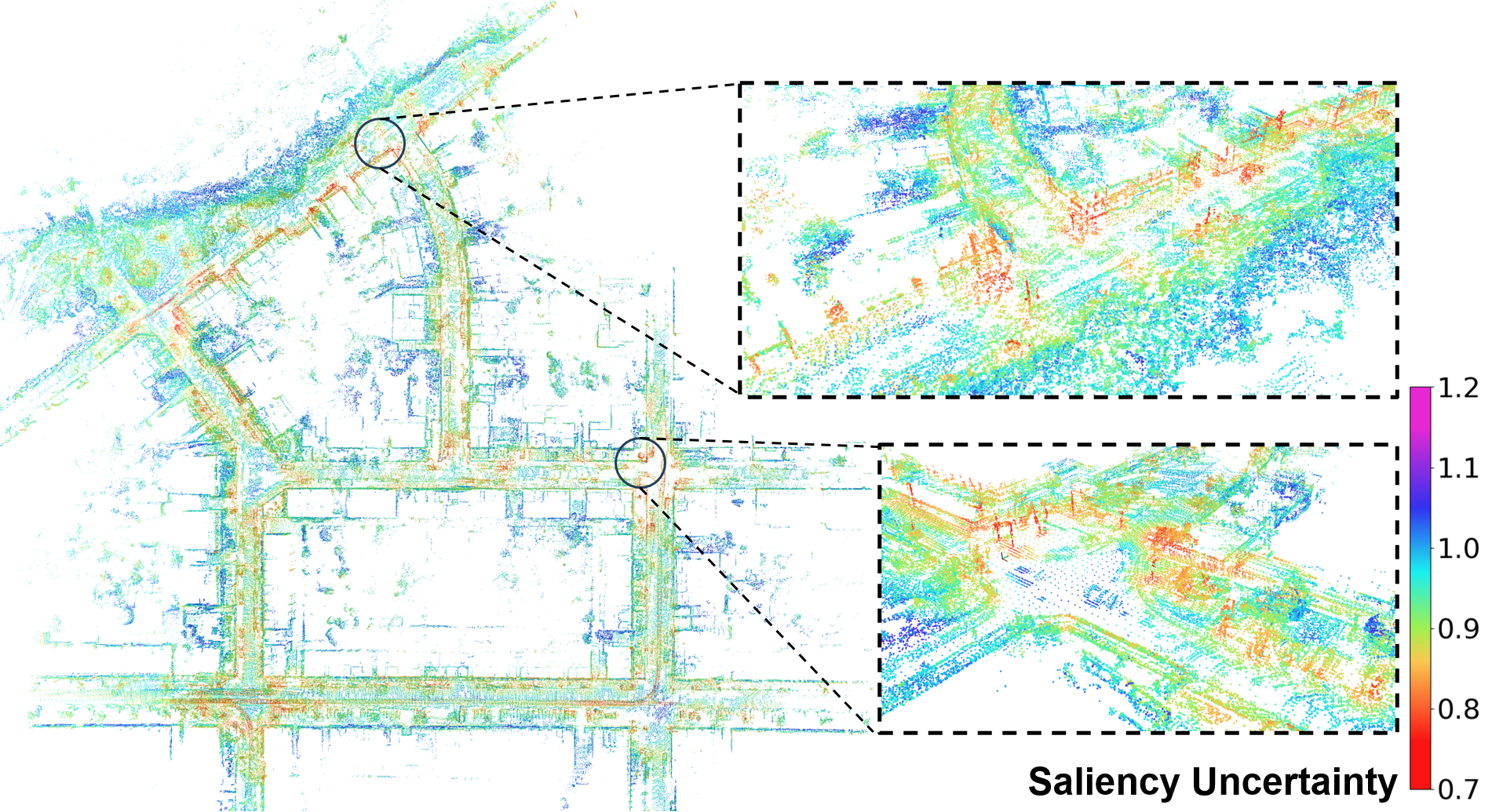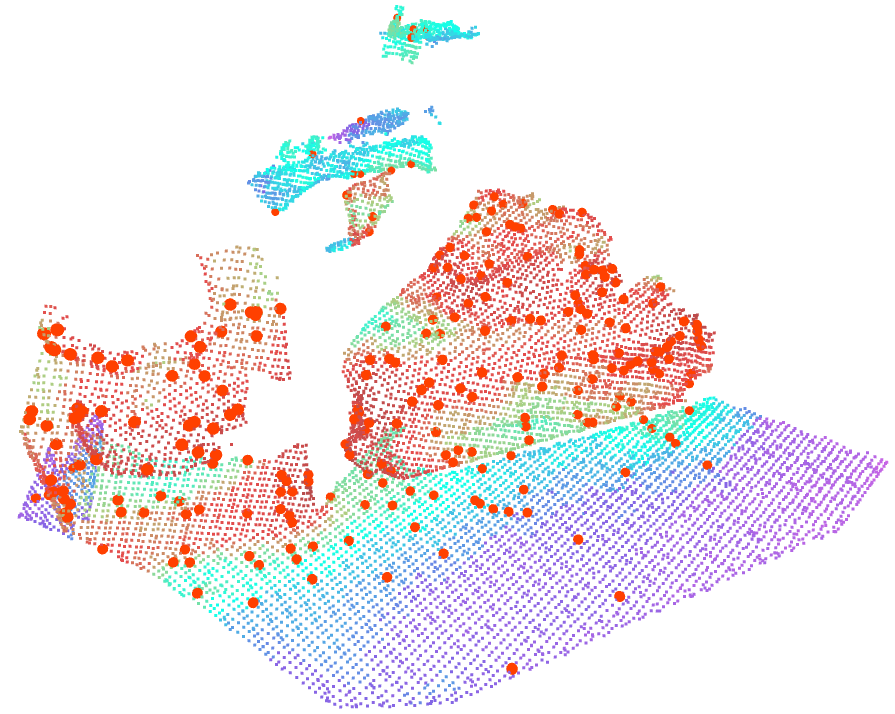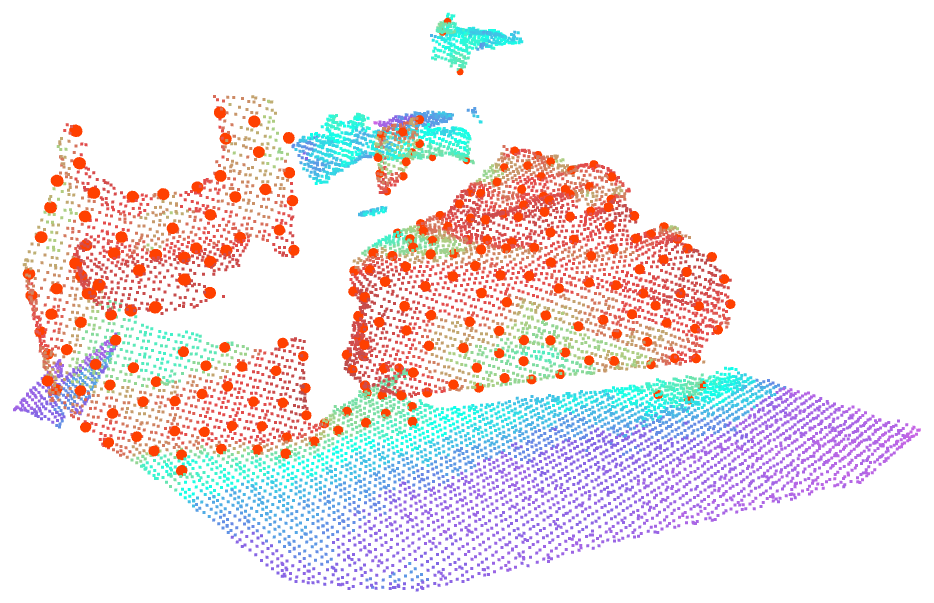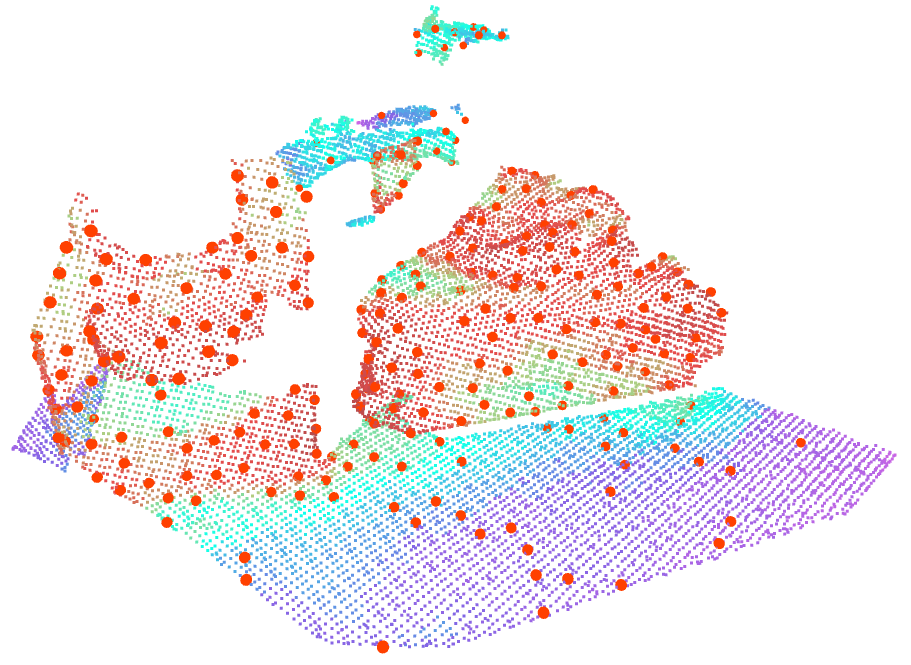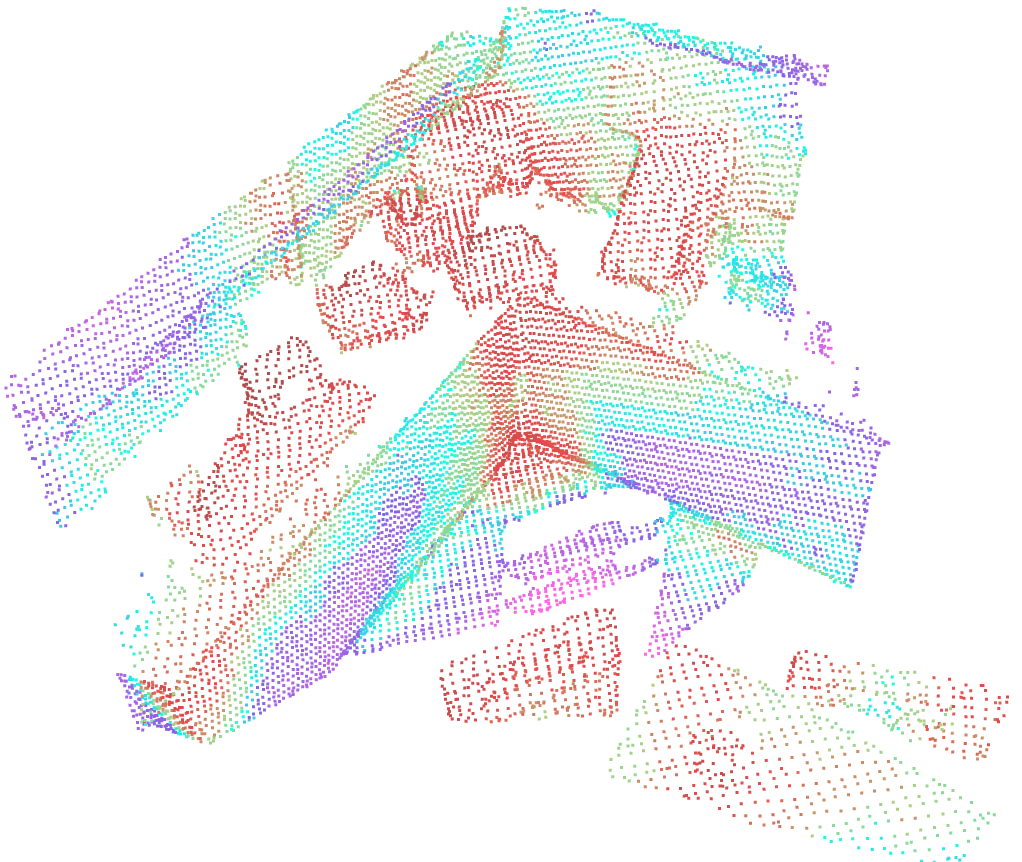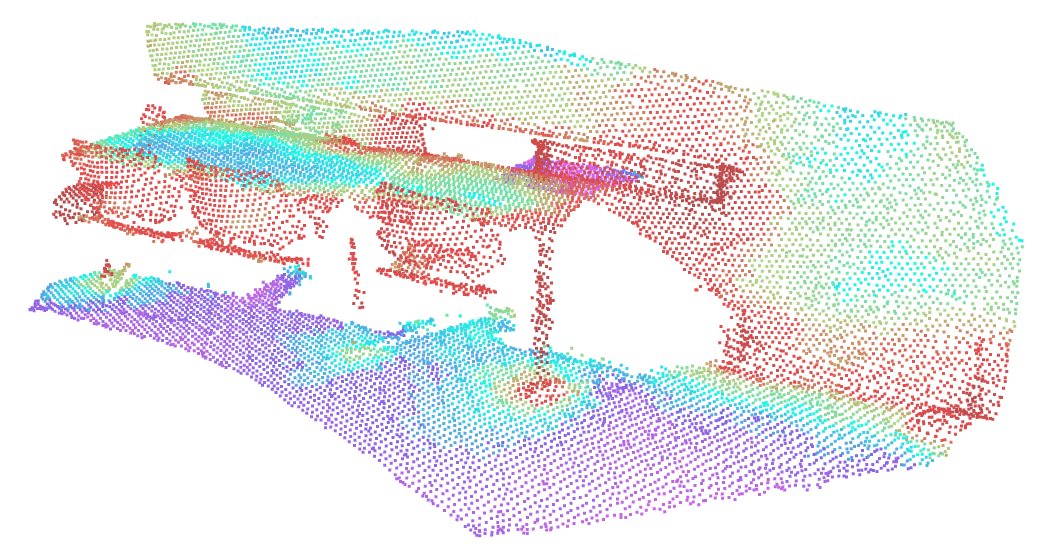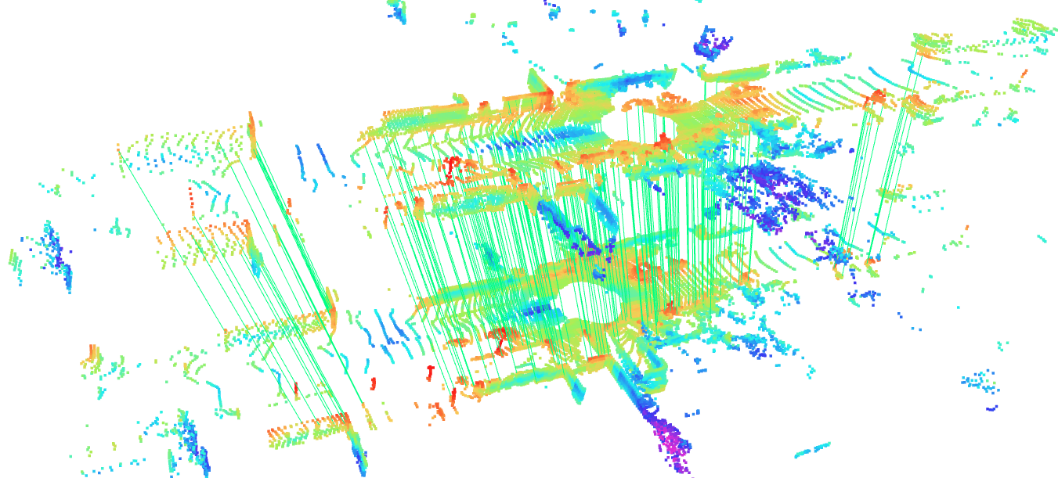This repository represents the official implementation of the paper:
KDD-LOAM: Jointly Learned Keypoint Detector and Descriptors Assisted LiDAR Odometry and Mapping (accepted by ICRA 2024)
Renlang Huang, Minglei Zhao, Jiming Chen, Liang Li | Zhejiang University
Ubuntu 64-bit 16.04 or 18.04 or 20.04 (tested).
ROS Kinetic or Melodic or Noetic (tested). ROS Installation
- Run these commands to install dependencies first:
sudo apt-get update
sudo apt-get install git build-essential linux-libc-dev -y
sudo apt-get install cmake -y
sudo apt-get install libusb-1.0-0-dev libusb-dev libudev-dev -y
sudo apt-get install mpi-default-dev openmpi-bin openmpi-common -y
sudo apt-get install libflann1.9 libflann-dev -y
sudo apt-get install libeigen3-dev -y
sudo apt-get install libboost-all-dev -y
sudo apt-get install libvtk7.1p-qt libvtk7.1p libvtk7-qt-dev -y
sudo apt-get install libqhull* libgtest-dev -y
sudo apt-get install freeglut3-dev pkg-config -y
sudo apt-get install libxmu-dev libxi-dev -y
sudo apt-get install mono-complete -y
sudo apt-get install openjdk-8-jdk openjdk-8-jre -y
- Then follow PCL Installation. PCL 1.12.0 has been tested.
Install FMT, the prerequisite of Sophus:
git clone https://github.com/fmtlib/fmt.git
cd fmt
mkdir build
cd build
cmake ..
make
sudo make install
Clone the repository and make:
git clone https://github.com/strasdat/Sophus.git
cd Sophus
mkdir build
cd build
cmake ..
make
sudo make install
Follow oneTBB installation. Release tagged 2021.8.0 is tested.
Python 3 (Python 3.7 is tested, conda is recommended).
requirements (pip installation): numpy, scipy, torch, torchvision, open3d, rospy
Code has been tested with Ubuntu 20.04, GCC 9.3.0, Python 3.7, PyTorch 1.7.1, CUDA 11.1 and cuDNN 8.1.0.
Clone the repository and catkin_make:
mkdir -p ~/kddloam_ws/src
cd ~/kddloam_ws/src
git clone https://github.com/NeSC-IV/KDD-LOAM.git
cd ../
catkin_make -DPYTHON_EXECUTABLE=/usr/bin/python3
Compile the C++ extensions for the neural network:
cd ~/kddloam_ws/src/scripts/cpp_extensions
sh compile_wrappers.sh
cd ~/kddloam_ws/src/TCKDD/cpp_extensions
sh compile_wrappers.sh
cd ~/kddloam_ws/src/TCKDD
mkdir ckpt
mkdir logs
We provide pre-trained weights in the release page. Please download the latest weights and put them in the ckpt directory.
The dataset can be downloaded from PREDATOR to YOUR_DATA_PATH, which you are supposed to modify in /TCKDD/datasets/match3d.py. The data should be organized as follows:
--YOUR_DATA_PATH--3dmatch--metadata
|--data--train--7-scenes-chess--fragments--cloud_bin_0.ply
| | | |--...
| | |--poses--cloud_bin_0.txt
| | |--...
| |--...
|--test--7-scenes-redkitchen--fragments--cloud_bin_0.ply
| | | |--...
| | |--poses--cloud_bin_0.txt
| | |--...
| |--...
Download the data from the KITTI official website to YOUR_DATA_PATH, which you are supposed to modify in /TCKDD/datasets/kitti.py and /launch/kitti_publisher.launch. The data should be organized as follows:
--YOUR_DATA_PATH--KITTI_data_odometry--results (ps: ground truth)
|--sequences--00--calib.txt
| | |--times.txt
| |--...
|--velodyne--sequences--00--velodyne--000000.bin
| | |--...
| |--...
|--pairs (ps: will be generated by our code)
To train a model on the indoor 3DMatch dataset, please run:
cd TCKDD
python train_3dmatch.py
To evaluate a model on the 3DMatch dataset, please run:
cd TCKDD
python evaluate_3dmatch.py
And you can evaluate various types of keypoint detectors with different number of keypoints of a specified model:
python evaluate_3dmatch.py --keypoint_detector prob --num_keypoints 500 --model_path ./checkpoints/3dmatch_kpfcnn_HCL64_40000.pth
To detect the 3D keypoints of a point cloud and register it to a reference point cloud via feature matching, you can refer to inference_3dmatch.py as an example:
python inference_3dmatch.py --keypoint_detector nms --num_keypoints 500 --sample_index 1000 --model_path ./checkpoints/3dmatch_kpfcnn_HCL64_40000.pth
Here are some examples of point clouds rendered according to the predicted saliency uncertainty (saliency descends by red->green->blue->purple, i.e., red regions are salient):
To train a model on the outdoor KITTI dataset, please run:
cd TCKDD
python train_kitti.py
To evaluate a model on the KITTI dataset, please run:
cd TCKDD
python evaluate_kitti.py
And you can evaluate various types of keypoint detectors with different number of keypoints of a specified model:
python evaluate_kitti.py --keypoint_detector prob --num_keypoints 5000
To detect the 3D keypoints of a point cloud and register it to a reference point cloud via feature matching, you can refer to inference_3dmatch.py as an example:
python inference_kitti.py --num_keypoints 5000 --sample_index 59 --model_path ./checkpoints/kitti_HCL64_augm_23500.pth
Download KITTI odometry dataset to YOUR_DATA_PATH and set the dataset_folder and sequence_number parameters in kitti_publisher.launch file. You can start the LiDAR odometry and mapping by running the following commands in different terminals to launch the corresponding groups of ROS nodes.
python keypointsDescription.py
python odometry.py
roslaunch kddloam_velodyne kddloam.launch
roslaunch kddloam_velodyne kitti_publisher.launch
Meanwhile, you can launch the savePath roscpp node (refer to kitti_publisher.launch) to record the localization results to a txt file, then you can evaluate the relative pose errors through the official KITTI odometry evaluation tools after synchronizing the localization results and the ground-truth poses. Note that the performance reported in our paper is evaluated on the premise that no LiDAR frames are discarded during system operation.
If you use this library for any academic work, please cite our original paper KDD-LOAM (accepted by ICRA 2024).
In this project we use (parts of) the official implementations of the following works:
- KPConv (backbone)
- D3Feat (data preprocessing)
- PREDATOR (dataset management)
- CT-ICP (voxel hash map implementation)
- KISS-ICP (motion compensation, data association, robust registration)
- A-LOAM (kitti publisher, scan-to-scan and scan-to-map pipeline)
- tsl robin-map library (from which the
include/tslis forked directly)
We thank the respective authors for open sourcing their methods. We would also like to thank reviewers.
